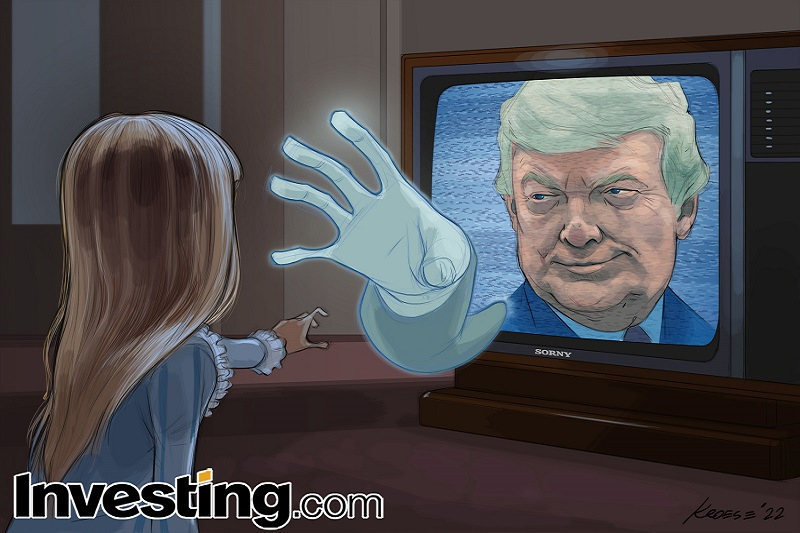By Geoffrey Smith
Investing.com -- The U.S. midterm elections may not have brought financial markets everything they hoped for, but they appear to have brought one indubitable long-term good.
The rejection of Donald Trump’s proteges and proxies looks likely to break the spell over the Republican Party of a man whose reckless fiscal and trade policies had already put the economy on an unsustainable path even before the pandemic.
If – as seems likely – the next Republican Presidential candidate is Ron DeSantis (convincingly re-elected as governor of Florida) or a like-minded Conservative, then the party will be able to offer a convincing alternative to the tax and spending priorities of the Democrats in 2024, without the associated costs of erratic populism and self-defeating trade wars.
That may seem harsh judgment on a period that many remember as one of rapid growth and falling unemployment. However, the truth is that the Trump boom was a sugar rush founded on a massive widening of the fiscal deficit that never even tried to pay for itself: between 2016 and 2019, the last year before the pandemic, the deficit had risen from $590 billion to $980 billion.
Covid-19 covered up that basic truth. In 2020, it blew holes in the budget (as well as wrecking any chance of China meeting its commitments under the famous “Stage 1” trade deal), but in 2019, the last year before the pandemic, the Congressional Budget Office estimated that Trump’s tax cuts would add $1.9 trillion to the national deficit over 10 years, even after accounting for growth effects.
Any revival of that policy today would likely have catastrophic consequences, in a brave new world where inflation is alive and well, and where bond vigilantes hand out vicious beatings to leaders – like the U.K.’s ill-fated Liz Truss – who try to ignore it. Trump could browbeat Federal Reserve Chair Jerome Powell into easing monetary policy in 2019, when growth and inflation were slowing, but market reactions to the bullying of an independent central bank would be very different today.
But the budget is only one area – albeit a huge one – where Trump could do long-term damage to U.S. markets.
His unyielding denial of the realities of climate change undermined valid arguments about near-term risks to energy security. His failure to implement meaningful healthcare reform ensured that millions of Americans still have worse access to healthcare than their peers in other developed countries, with unquantifiable but undeniably huge costs to the U.S.’s service-based economy.
His unseemly closeness to Russia’s Vladimir Putin, meanwhile, could only too easily create a situation in which Russia’s nuclear blackmail is rewarded, setting a precedent that could have fateful codas in the Taiwan Straits or on the Korean peninsula, with all that that implies for the U.S. and the world economy.
Most importantly, a return of Trump and Trumpism would be a return to an America where the rule of law itself would be in serious doubt, given the ex-President’s flagrant efforts to overturn the legitimate election results of 2020.
Most U.S. investors don’t invest in emerging markets. Those who do understand that markets impose significant costs on economies where politicians unleash mobs to stop the smooth transfer of power. Country risk exists as much for the U.S. as it does for Argentina or Zimbabwe, the only difference being that it would take only a small increase in U.S. country risk to raise the cost of capital for the world economy noticeably.
None of this is to say that the outcome of the midterms is perfect – or even optimal – for U.S. or world markets.
But with Trump sidelined and control of the House of Representatives passing back to the Republicans, there is a chance – however slim - of bipartisanship gaining traction again in Washington. Even if the more immediate risk is of two years of drift and paralysis.
It’s unlikely to be pretty, but nor is it the worst scenario imaginable.
